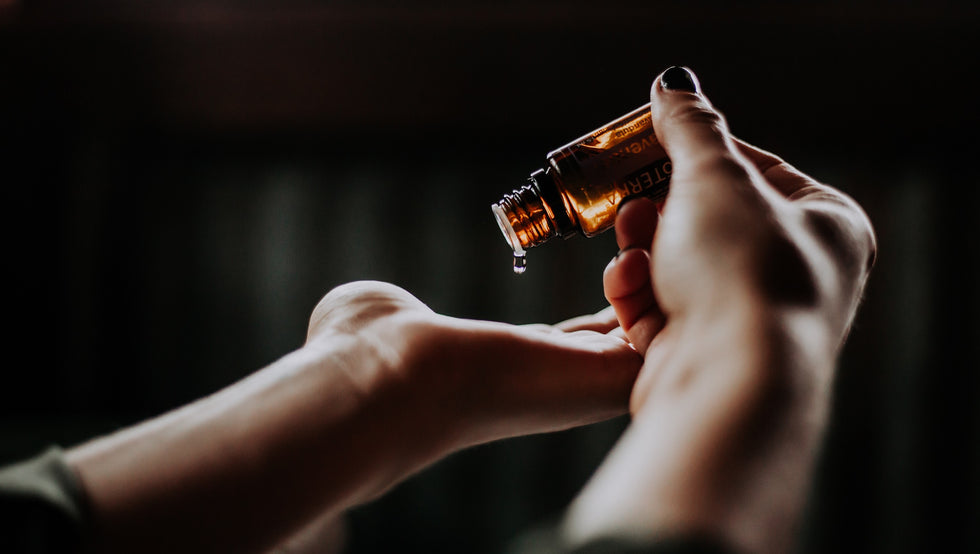What is aromatherapy?
Aromatherapy and the use of essential oils have been in use for around 6,000 years. It is an alternative form of therapy using holistic healing treatments to help with many different problems occurring from the human body. Essential oils are products made from raw plant material using methods such as distillation by water or steam, or from the rind of citrus fruits (such as orange and lemon).
The benefits of essential oils are numerous, and many of us have just started to scratch the surface of how to use them. Clinical studies have shown that essential oils provide many benefits that can aid in the well-being of individuals. Essential oils acting as an alternative treatment alongside medical treatments can help increase recovery rates or their effectiveness.
So, as an aromatherapy newbie, how do we approach and navigate the vast universe of essential oils. We can always start with the most common uses of essential oils and beginner oils that can help in multiple instances.

How do we use aromatherapy/essential oils?
Normally essential oils are used either topically (diluted using a carrier oil and applied directly on the skin) or through inhalation by using an aromatherapy diffuser, steam or
Topical uses of essential oils are normally used during massages to provide a soothing aroma to help relax the body and muscles. Since many essential oils have a pleasant and soothing scent, topical use of essential oils during massages can help enhance mood and increase energy. It can also be applied topically during showers or baths so the essential oils can be absorbed even after your skin dries, providing you with an aroma that lingers on your skin.
For inhalation, since aromatherapy diffusers are used, they are more suitable for cleansing the home and the environment around you. Inhalation or steamers can help kill germs, disinfect environments, act as insect repellents or help with matters such as allergies and sleep.

Benefits of aromatherapy
We can start using aromatherapy and essential oils in our daily lives in various settings. Whether you having problems with sleep, fatigue, mood swings, allergies or even pain, essential oils can always help.
Here are a few essential oils that can help get you started. You can start incorporating essential oils into your daily lives if you have the following issues:
1) Relaxation & Sleep
Lavender - When sleep doesn’t come, lavender should always be the first thing that comes into mind. This soothing, yet powerful essential oil has a positive effect in reducing anxiety and help promote better sleep quality. Not only does it help you fall asleep faster and foster better sleep, but lavender also helps people to reduce symptoms of pain.
Chamomile - Studies have shown that using chamomile has helped significantly helped improve sleep within the elderly as they normally have insomnia issues. The medicinal plant is anesthetic but safe, often acting as a natural tranquilizer.
2) Fatigue
Peppermint - With its refreshing smell, it is no surprise that peppermint helps with fatigue. The invigorating smell of peppermint can help benefit performance on demanding cognitive tasks and decrease associated mental fatigue.
Citrus oils (grapefruit, lemon, orange) - Due to their acidity, citrus oils are energizing and help wake you up and sparks mental alertness.
3) Pain Relief
Lavender - Lavender has various properties that have different uses. One of its most powerful uses is pain relief. Studies show that it is effective in treating headaches and migraines, as well as significantly decreased use of pain medication after tonsillectomy surgery in pediatric patients.
Peppermint - Peppermint is often used to treat pain in the human body. It can help alleviate pain from headaches or stomach aches/cramps and may help relieve muscle and joint pain.
4) Seasonal Allergy Relief
Eucalyptus - Respiratory relief is the first and foremost thing that comes to mind when using eucalyptus oil. When you are having nose congestion during spring, eucalyptus is your go-to oil to help relieve stuffy noses. At the same time, if you are allergic to dust mites, simply washing your clothes and beddings using eucalyptus can help reduce allergens. It can also help alleviate symptoms for bronchitis and asthma.
Frankincense - Frankincense has long been coined the holy grail of essential oils, containing many redeeming properties, it can help reduce inflammation and alleviate symptoms related to seasonal allergies especially for the respiratory system.
5) Mood Enhancement & Well-being
Bergamot - A study previously conducted at a Utah mental health facility has concluded that just inhaling bergamot essential oil can be an effective adjunct treatment to improve individuals’ mental health and well-being.
Lavender - As lavender has the effects of calming and soothing anxiety, it is not a surprise that it can also help enhance your personal well-being and overall mood as cortisol levels decrease.
References:
https://www.medicalnewstoday.com/articles/10884.php https://www.medicalnewstoday.com/articles/320225.php https://www.ncbi.nlm.nih.gov/pubmed/29154054 https://www.sciencedirect.com/science/article/pii/S2221169115001033 https://www.ncbi.nlm.nih.gov/pubmed/27563324 https://www.ncbi.nlm.nih.gov/pubmed/22517298 https://www.sciencedirect.com/science/article/pii/S0165587613003479 https://www.ncbi.nlm.nih.gov/pubmed/28337799 https://www.ncbi.nlm.nih.gov/pubmed/20359267 https://www.ncbi.nlm.nih.gov/pubmed/21332802 https://www.ncbi.nlm.nih.gov/pubmed/27563324 https://www.ncbi.nlm.nih.gov/pubmed/31003654 https://www.ncbi.nlm.nih.gov/pubmed/26133206 https://www.ncbi.nlm.nih.gov/pubmed/26211735 https://www.ncbi.nlm.nih.gov/pubmed/30660371 https://www.ncbi.nlm.nih.gov/pubmed/30087294 https://www.ncbi.nlm.nih.gov/pubmed/27106030 https://www.ncbi.nlm.nih.gov/pubmed/27117114
